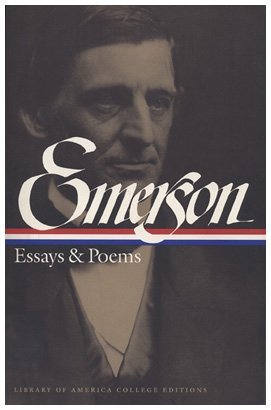
Civil Disobedience and Other Essays
Book Description
Defiance has a voice, and it echoes through the pages of 'Civil Disobedience and Other Essays.' In a world where conformity reigns, one man's battle against an unjust society ignites a movement. With piercing clarity, Thoreau challenges the status quo, daring individuals to rise against oppression and embrace their convictions. Each essay is a rallying cry, urging readers to reflect on their moral duties and the power of nonviolent resistance. This collection pulsates with urgency, compelling action against apathy. What will it take for a single act of courage to inspire a revolution?
Quick Book Summary
"Civil Disobedience and Other Essays" by Henry David Thoreau is a powerful collection of philosophical and political essays urging individuals to resist unjust laws and government actions through principled noncompliance. Thoreau famously advocates for the supremacy of conscience and the necessity of individual moral judgment above societal expectations. His essays challenge readers to question the legitimacy of authority and to act authentically in the face of injustice, heaping praise on nonviolent resistance as a means to effect social change. Throughout the collection, Thoreau addresses a range of topics—from slavery and the Mexican-American War to nature and self-reliance—using his lived example to illustrate the transformative power of personal integrity. This work continues to inspire champions of civil rights, environmentalism, and personal liberty.
Summary of Key Ideas
Table of Contents
The Moral Duty of the Individual Conscience
Thoreau's central thesis in "Civil Disobedience" is the primacy of individual conscience over societal and governmental demands. He contends that citizens must not blindly obey laws they consider immoral, underscoring the responsibility to challenge unjust systems. Thoreau shares his personal refusal to pay taxes that supported slavery and the Mexican-American War, making his stance a practical call to action rather than abstract philosophy. This moral imperative is not about anarchy, but about fulfilling one's duty to justice and humanity.
Civil Disobedience as a Tool for Social Change
The essays argue that nonviolent resistance is an effective avenue for enacting societal change. Thoreau draws from personal experience and historical examples to show how peaceful protest can disrupt the machinery of injustice. He suggests that one person's principled stand can inspire collective action, eventually leading to significant reforms. By refusing to participate in wrongdoing, even passively, individuals reclaim their agency and sharpen the collective conscience of their communities.
Nonconformity and Authentic Living
A recurring theme is nonconformity and the courage to live authentically, regardless of external pressures. Thoreau criticizes the ease with which people fall into complacency, simply following customs or government dictates out of habit. He exhorts readers to examine their beliefs and live in accordance with what is true and right, even when it leads to social ostracism or personal risk. True adherence to principle, for Thoreau, often means standing alone against popular opinion.
Critique of Government and Institutional Power
Thoreau directs sharp critique at government and institutional power, arguing that most governments serve their own interests rather than those of the people. He is particularly scathing toward systems that enable slavery and oppression, insisting that legitimacy stems from moral justice, not mere legality or tradition. Thoreau's skepticism toward centralized authority calls for each individual to serve as a check on institutional abuses, fostering a more just and equitable society.
Nature as a Source of Truth and Inspiration
Many of the essays touch on the relationship between humanity and nature, with Thoreau urging a return to simplicity and direct encounter with the natural world. He sees nature as a source of inspiration and moral guidance, in contrast to the corrupting influences of society. Through contemplation and communion with nature, individuals can renew their sense of purpose and recalibrate their values, finding the clarity necessary to resist injustice and live with integrity.
Download This Summary
Get a free PDF of this summary instantly — no email required.





